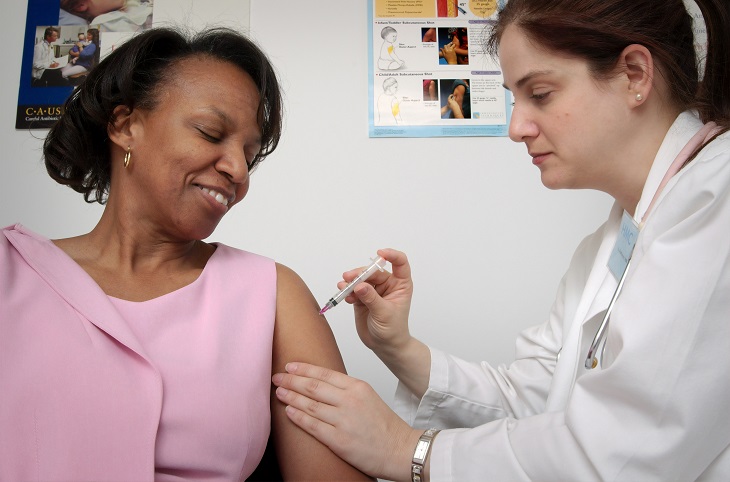THE DAILY DOSE
Why Preventive Medicines Are Taking Over Traditional Therapies

The onset of the COVID-19 pandemic has pushed the state of the United States health care system into hyper-focus. The virus has made the most impact on older Americans and those suffering from preexisting health conditions, such as diabetes; however, it has also made waves throughout communities of all ages and with varying degrees of health status. This pandemic has changed the way many people, politicians included, look at the health care system.
The latest mainstream efforts in the overall health of the population include a lot of preventive medicine. Although this specific type of health care has been around for over a century, it has usually been operated as a secondary approach. In the book The Healthcare Imperative: Lowering Costs and Improving Outcomes, the authors stated that medical intervention prior to the onset of disease is the best way to prevent chronic illness, lower costs associated with treatment, and increase quality of life for all Americans.
What is preventive medicine?
Prior to advancements in the biomedical space, doctors of yesteryear attempted to prevent disease. When preventive medicine was first practiced, medical professionals devised three different ways to help lower the risk of developing disease.
They are:
- Increased dietary intervention and hygienic practices.
- Isolation of diseased persons.
- The use of the increased understanding of widespread disease for prevention advantage.
This type of preventive medicine used the avoidance of health issues and disease as a starting point as opposed to the treatment that follows. During that time, cures and medications were harder to come by, and so prevention was the best way to decrease illness. The same cannot be said for health care today, because as advancements in biomedical science have been made, the focus has shifted to a treatment-based system.
Now, preventative medicine is used to not only stop the onset of chronic illness, but also to manage and slow the progression in people currently suffering from diseases that are out of their control. There are three specific forms of preventive medicine practiced today:
- Primary: The complete avoidance of disease or illness through knowledge on best health practices and reduction of risk.
- Secondary: This form addresses risk-based factors including genetics and medical history to help prevent the worsening of a disease or the onset of new illness.
- Tertiary: The final form of preventive medicine puts its focus on lessening the overall health impact of a disease that is already established within a patient. It is designed to help people with illnesses live a better-quality life.

How does preventive medicine work?
Western medicine has done a great job of treating illness. According to one study, traditional types of medicine have led to the reduction of death by heart disease and stroke by 60 and 70 percent, respectively, since the 1970s. Other diseases such as HIV and cancer have also benefited from the advancement of western medicine. The way that preventive medicine works, however, is not by lowering the grave health risks associated with these types of diseases, but by avoiding their onset altogether.
There are several different types of preventive medicine. In terms of public health, physicians aim to work within communities to have a larger-scale positive effect. This is chiefly done through the use of nutrition as medicine; the spread of information on practices to avoid for optimal health (i.e. smoking, the overconsumption of alcohol etc.); and the rallying for new legislation regarding access to preventive health care measures for all.
Other ways preventive medicine works is by encouraging people to:
- Exercise regularly.
- Limit stress on both the body and mind.
- Vaccinate early.
- Utilize available screening programs.
- Practice prophylactic and antiseptic processes.
Is preventive medicine better than western medicine?
Conventional medicine aims to reduce health risk and increase quality of life for those suffering from chronic illness. Medical advancements have focused on upgrading the ways diseases are treated. Preventive medicine, on the other hand, is not designed to overhaul the current health care system, but to lessen the widespread need for treatment.
According to some research, eating a poor diet is a leading risk factor for the development of illness, disability, and death across the globe. Western medicine has the ability to tackle illnesses that are caused by poor diet; however, preventive medicine has the power to encourage and implement healthier food choices, which in the long run could prevent diseases entirely in a large portion of the population.

What is considered preventive medicine?
There are many types of medicine that could be considered preventative. As mentioned, diet, exercise, and the avoidance of tobacco and alcohol are all natural ways to lessen the risk of developing disease. Other methods used widely today as forms of prevention include:
- Screenings (cancer, mental illness etc.).
- Medication and supplementation usage (e.g. aspirin for cardiovascular disease).
- Immunizations.
Not all forms of preventive medicine are used as traditionally, though. Biohacking, for example, isn’t as widely pushed by medical professionals as a form of treatment or prevention, but it can go a long way towards the avoidance of new disease.
Biohacking is done by changing diet and lifestyle factors in small increments to improve health in the long run. There are two different forms of biohacking used in preventive medicine:
- Nutrigenomics: This type focuses on a personalized approach to diet and nutrition.
- DIY biology: Experts provide the knowledge needed to conduct certain ‘experiments’ on oneself to encourage health outside of a clinical setting.
Recent research has suggested that nutrigenomics can have a great impact on health, and can even slow the progression of neurological disorders such as Alzheimer’s and Parkinson’s disease. Due to nutrient-dependent processes in the body, eating a diet rich in vitamins and minerals allows all organs and systems to function properly, thus limiting the progression and onset of disease.
The bottom line
Although more research needs to be done on the economic stability and implementation of widespread preventive therapy, many studies have come to the conclusion that prevention of disease is just as important as the treatment of chronic illness after the fact – if not more so.
Having a healthier population can lead to decreased health care costs, longer lifespans and quality of life for the American population, and relief for the health care system as a whole.
Featured image by Online Marketing on Unsplash